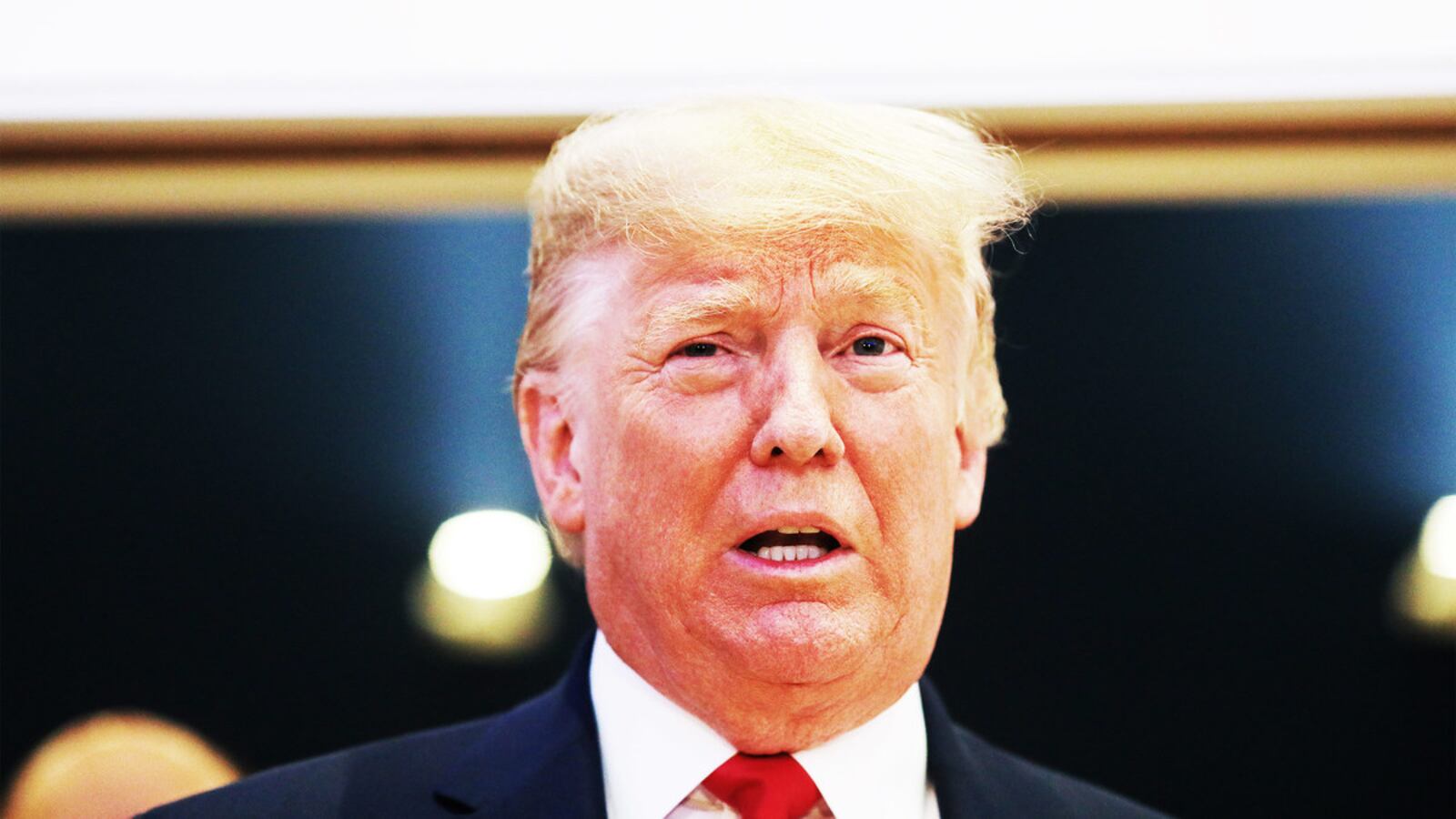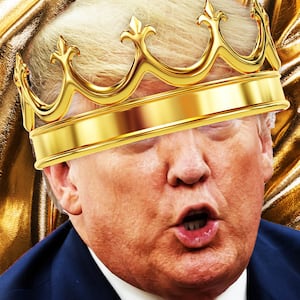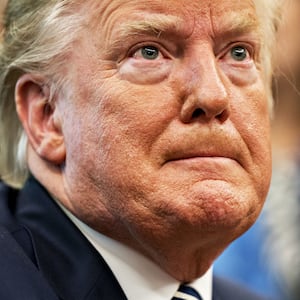The lesson of Watergate was that facts matter. The question presented by Ukrainegate is whether that is still true.
Donald Trump’s presidency has been marked by willful disregard of facts, and of reason itself. But while the president’s positions may be unhinged from reality, they always makes sense when viewed from one perspective: that of Trump’s self-interest.
Trump insists that Republicans accept the utter “perfection” of his actions, including the coercive threats to Ukraine’s president that triggered his impeachment. And Trump is likewise demanding that Republican senators participate in his absurd effort to cover up his effort to coerce Ukraine to manufacture dirt on Joe Biden, despite the fact that the key facts about his criminal scheme have already been uncovered and were systematically presented by the House managers during last week’s trial.
Trump’s focus now is on pressuring Republicans to further his futile cover-up by refusing to issue subpoenas to John Bolton—whose forthcoming book, The New York Times reported on Sunday, confirms what we already knew, namely that Trump employed the levers of government in an effort to force a client state to manufacture dirt on a political opponent—and other advisers who personally witnessed Trump directing his Ukraine extortion scheme.
Trump’s legal arguments against such subpoenas are less than makeweight, and typically contradictory. Trump argues the Senate should not subpoena White House officials like Bolton because he will interminably delay the trial by challenging the subpoenas in the courts. But Trump’s Justice Department is simultaneously arguing that Trump need not comply with subpoenas issued by the House by contending such disputes between Congress and the Executive Branch should not be decided by federal judges at all.
Yet the legal incoherence of Trump’s argument is of no concern to him. The point of all these arguments, from his perspective, is to force others to accept his power, and to insist that reality is whatever he wants it to be and says that it is at any given moment.
Most immediately, that means ensuring that Republican senators show cult-like obedience and refuse to issue subpoenas for probative evidence out of fear of angering the leader whom their careers depend on pleasing.
During last week’s presentations by the House managers, the Senate received a detailed account of perhaps the most extraordinary case of presidential corruption in the history of the republic. Many GOP senators responded by claiming boredom, with some breaking Senate rules to leave the floor for interviews with Fox News while complaining that there was “nothing new” to the case that Democrats were presenting. Like the parricide pleading for the court’s mercy as an orphan, this was true—if only because those same bored senators had voted to bar the managers from seeking additional evidence and witnesses.
Still, those senators are correct about one thing: The additional witnesses and evidence that they appear poised to deliberately avoid hearing would not provide any fundamentally new information.
We know what Trump did because—despite his unprecedented effort to prevent Congress from obtaining any evidence regarding his illegal scheme and his blanket direction that government officials defy congressional subpoenas—a group of plainly credible witnesses came forward and assisted the House in assembling a compelling account. That account has only been bolstered by additional evidence since Trump was impeached in December, including a tape apparently recording the commencement of Trump’s scheme to remove the U.S. ambassador to Ukraine.
While White House Counsel Pat Cipollone promised Trump would proffer a “factual” defense, the defense team’s initial presentation on Saturday indicated the precise opposite. Most of the day was devoted to a tendentious effort to justify the president’s steadfast refusal to share any evidence with Congress, with a break for wild talk from Trump personal attorney Jay Sekulow suggesting that Trump’s scheme was justifiable as an effort to validate Vladimir Putin’s assertion that Ukraine, not Russia, stole the DNC’s emails, in contradiction of the conclusions of nearly every U.S. intelligence agency.
Accordingly, it is now all but certain that the tightly constructed, amply supported House case against Trump will be materially unrebutted, whether or not the nation experiences the drama of televised testimony from Mick Mulvaney or Bolton. Thus, whether or not GOP senators agree to participate in Trump’s cover-up scheme, the nation will recognize that Donald Trump is a crook.
That brings us to what fundamentally distinguishes the investigation of Trump’s crimes from the Watergate inquiry. In June 1973, John Dean began his testimony before the Senate Watergate Committee about President Nixon’s involvement in the cover-up of the Watergate break-in. But Dean’s testimony was initially largely uncorroborated, and Dean was an admitted criminal, leaving much room for questioning his veracity. Sen. Howard Baker, a staunch defender of Nixon who initially schemed with the president to protect him during the investigation, suggested that Dean’s testimony was not enough to answer the key question: “What did the president know, and when did he know it?”
The next month, however, the White House publicly disclosed the existence of tapes that would prove whether Nixon or Dean was telling the truth. In August 1974, after being ordered to do so by the Supreme Court, Nixon finally turned over the “smoking gun” tape that proved he had participated in the cover-up, just as Dean had charged.
And, it turned out, facts did matter. Leading Republican defenders of the president, including Baker and the recently deceased Rep. Tom Railsback, turned on him. Faced with proof of Nixon’s criminality, they were not willing to bless it.
Today’s GOP officeholders, however, appear poised to make the opposite choice. As Virginia Heffernan has observed, the Republican Party under Trump has taken on the attributes of a cult of personality. Part-and-parcel of any cultish political movement is a continuous demand for declarations of loyalty, and punishment of the disloyal. Last week, a White House official roamed the halls of the Capitol ranting about how “I can’t wait for revenge.” Faced with such threats, Republican senators have plainly chosen to join in Trump’s crime scheme by furthering the president’s futile effort to cover up a crime that has already been disclosed.
The near-uniform complicity of Republican officeholders in Trump’s criminality will present voters with a stark choice in November: They will be called upon to decide whether or not they agree with Trump’s Republican Party that facts no longer matter.







